Resources
Get Matched to the Right Builder
FIND THE PERFECT CUSTOM HOME BUILDER WITH OUR FREE ASSESSMENT
Tired of feeling overwhelmed? Look no further. We'll match you to the right builder in the Houston area and save you months of valuable time and money you'd spend trying to find one on your own. Click below to get started!
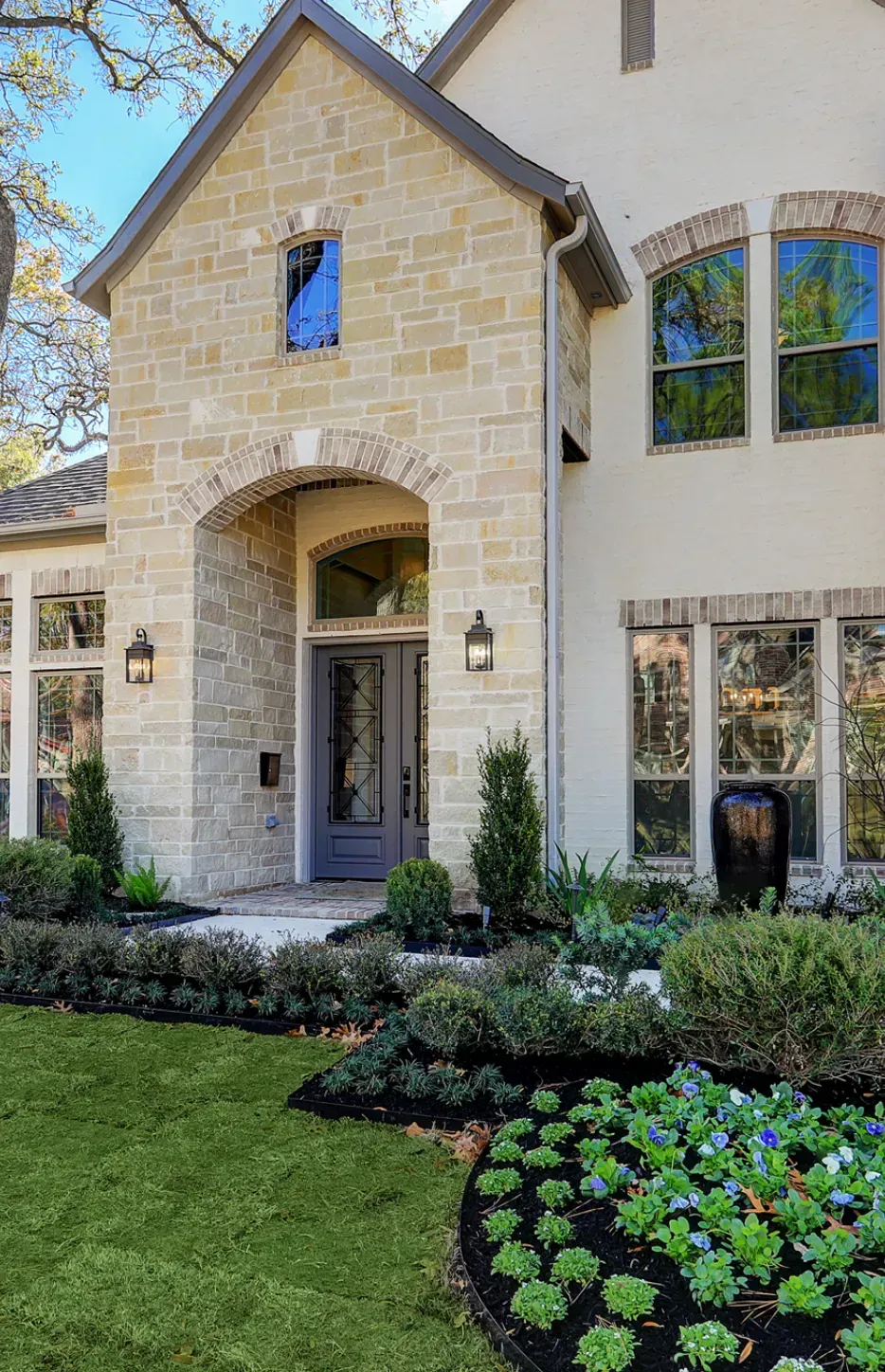
Download The Ultimate Custom Home Building Guide
A Step-by-step guide to building your custom dream home.
Download The Ultimate Custom Home Building Checklist
Finance

Finding Lot

Best Builder

Explore Our Gallery of Custom Homes
Browse our finished projects that display the craftsmanship of the builders we’ve matched with homeowners – turning dreams into reality.
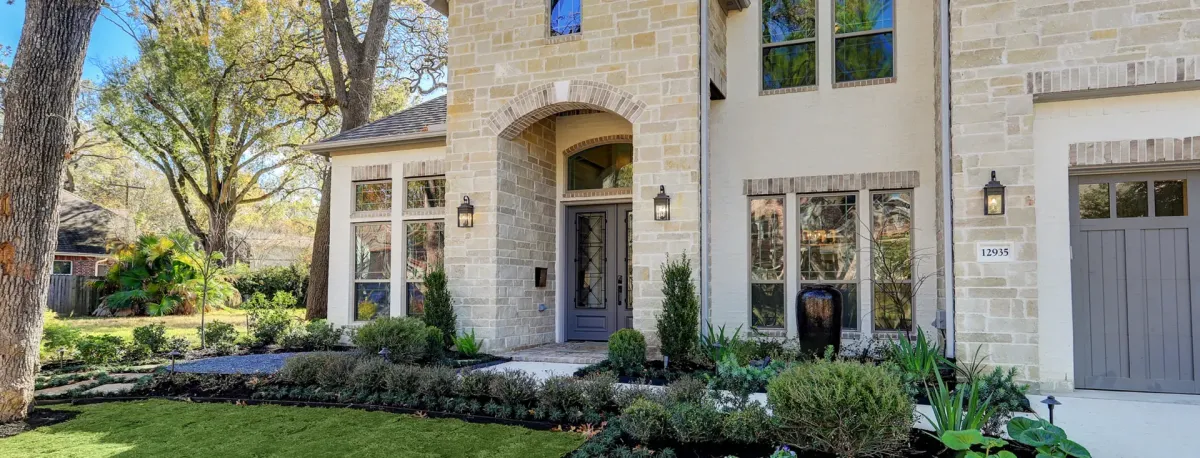




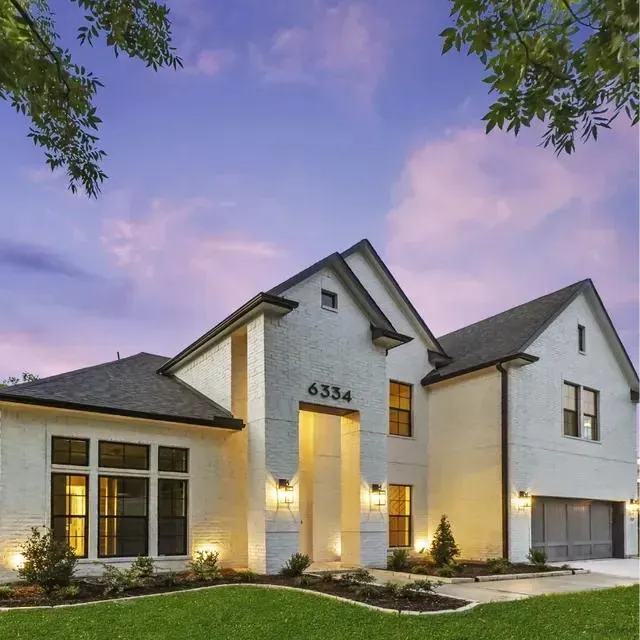

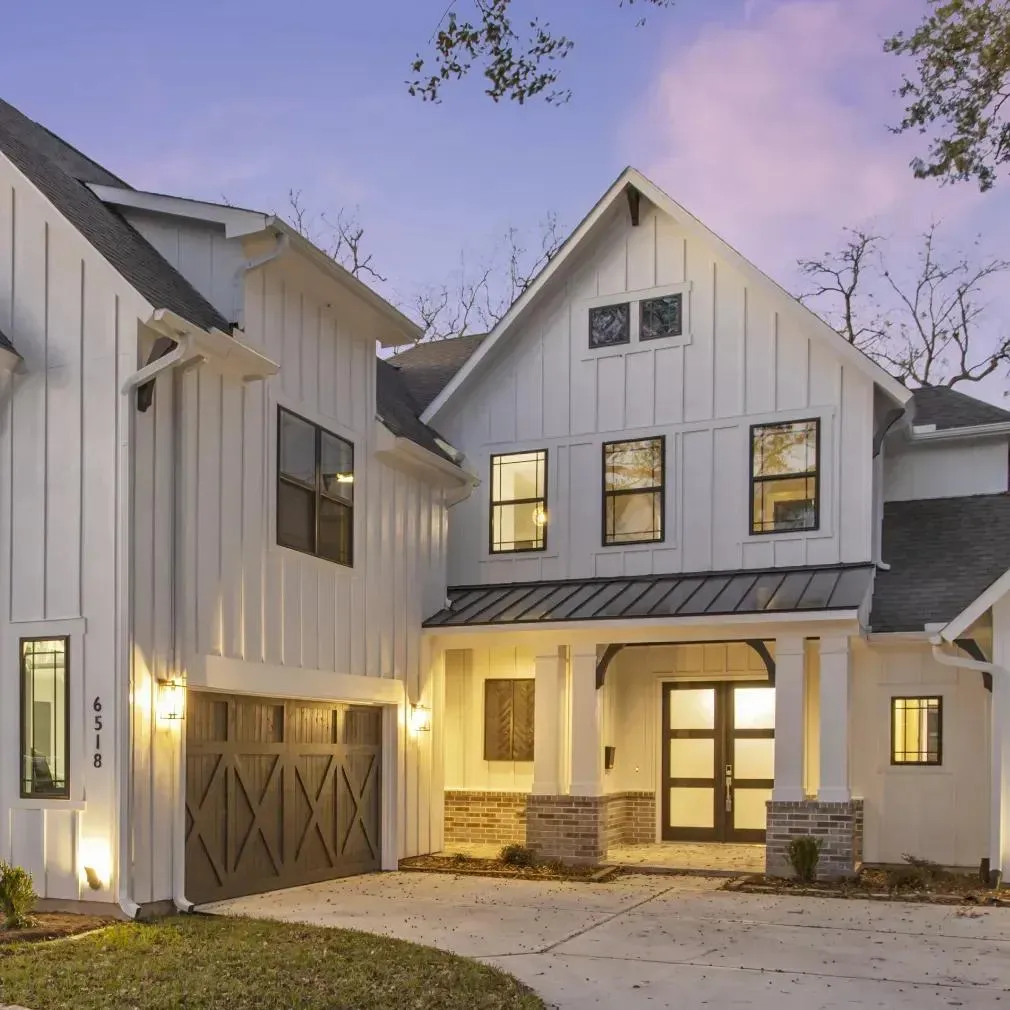

BLOG
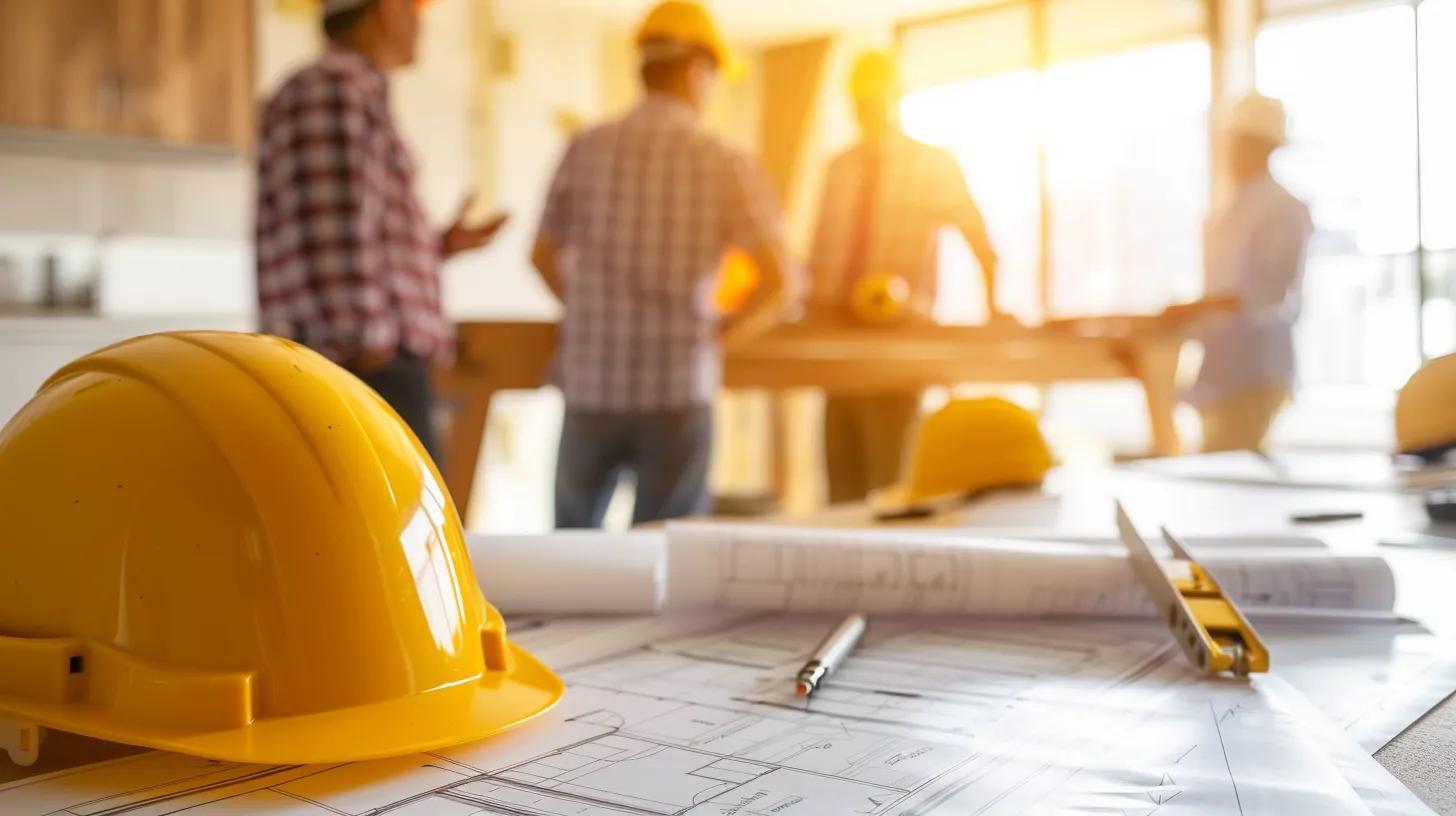
The Steps in Local Inspection Process for New Builds
Building a new home or commercial space in Houston is an exciting journey, but it also comes with strict requirements. One of the most important parts of this process is passing inspections at every stage of construction. These inspections make sure your build meets the City of Houston’s building codes, follows safety standards, and is ready for occupancy.
This guide walks you through each step of Houston’s local inspection process, from permits and planning to final approval. You’ll learn who’s involved, how to prepare, and how to avoid common issues that can delay your project.
Key Takeaways
The inspection process in Houston starts with foundation approval and ends with a final occupancy inspection.
Local inspectors review each stage to make sure it follows the City of Houston Building Code.
Permits must be secured through the Houston Permitting Center before inspections are scheduled.
Inspections cover key areas like framing, electrical, plumbing, insulation, and structural safety.
Working with licensed contractors and experienced inspectors reduces delays.
Pre-inspection consultations and timely documentation help keep your project on track.
What Is the Local Inspection Process for New Builds?

The local inspection process ensures that every phase of a new construction project meets safety, structural, and regulatory standards. In Houston, this process begins with the approval of construction plans by the City of Houston Permitting Center and continues with a series of scheduled, on-site inspections during critical stages of the build.
Each inspection phase—such as foundation, framing, electrical, plumbing, insulation, drywall, and the final walkthrough—is designed to verify code compliance under standards like the City of Houston Building Code and the National Electrical Code. Inspectors document results, flag violations, and approve or request corrections to ensure the building is safe for occupancy.
What Are the Key Phases of a New Build Inspection?
Houston’s inspection process typically includes:
Foundation Inspection: Verifies footings, slab work, and reinforcement materials to ensure structural stability from the ground up.
Framing Inspection: Confirms the wall layout, beams, and roof structure match the approved construction plans and meet structural requirements.
Electrical and Plumbing Inspections: Ensures wiring, circuit breakers, outlets, plumbing lines, and drainage systems follow safety standards and local codes.
Insulation and Drywall Inspections: Reviews energy efficiency compliance and fire safety through proper insulation placement and drywall installation.
Final Inspection: A comprehensive review of all systems and corrections. If approved, it results in the issuance of a Certificate of Occupancy by the city.
Who Are the Main Participants in the Inspection Process?
City of Houston Building Inspectors: Enforce code compliance, conduct scheduled inspections, and issue approvals or corrective notices.
Licensed Contractors and Architects: Responsible for executing the build according to approved plans and code standards.
Project Managers: Serve as the communication bridge between inspectors, contractors, and property owners to ensure timelines are met.
Third-Party Inspection Experts (optional): Sometimes hired for additional oversight, especially on large-scale or complex builds.
Why Is the Inspection Process Critical for New Construction Projects?
Each inspection helps prevent structural failures, fire hazards, poor drainage, and other issues that could compromise safety or violate city code. These inspections also protect homeowners and investors by validating the quality of the build and ensuring eligibility for occupancy permits. Failed inspections can lead to costly rework, delays, or stop-work orders—making preparation essential.
How to Prepare for Each Phase of the New Build Inspection?

Proper preparation ensures a smooth inspection. Homeowners and builders should consult professionals early and keep detailed documentation including plans, permits, and previous reports ready for review.
What Happens During the Pre-Inspection Consultation?
Before construction begins, a pre-inspection consultation may take place to review project plans, assess the site layout, and identify potential code concerns. Inspectors may flag risks related to drainage, ventilation, lot setbacks, and access to utilities. This step helps avoid future violations and clarifies the inspection timeline.
How to Schedule and Obtain Building Permits for Inspections
To begin, applicants must submit detailed building plans and supporting documentation through the City of Houston Permitting Center. Once approved, inspection appointments are made via the iPermits system. Permits must be active before work can begin, and inspections are typically required before progressing to the next phase.
How to Choose the Right Inspector for Your New Build
While most inspections are conducted by the City of Houston, third-party inspectors can also assist with preliminary reviews or quality control. When selecting a professional:
Ensure they hold valid Texas certifications.
Ask for references from trusted local builders or architects.
Choose someone who communicates clearly and provides actionable guidance.
A qualified inspector will help identify problems early and recommend code-compliant solutions to keep your project moving forward.
What Are the Detailed Inspection Phases in New Builds?

Understanding the detailed phases helps anticipate challenges and costs, avoiding issues such as leaks, flood hazards, or pressure problems with electric service.
What Does a Foundation Inspection Cover?
This inspection reviews the building’s base, ensuring proper footings, slab work, and structural supports. Inspectors look for quality reinforcement, correct concrete mixtures, and water protection to prevent future hazards like structural failure.
How Is the Framing Inspection Conducted?
Inspectors evaluate load-bearing walls, beams, and roof structures to ensure they meet engineering specifications. Any deviation from approved blueprints is noted so contractors can promptly make necessary corrections.
What to Expect in Electrical and Plumbing Inspections?
Electrical inspections check wiring, circuit breakers, and grounding systems for compliance with the national electrical code. Plumbing inspections ensure that all piping, water supply, and waste systems are installed properly, leak-free, and meet local codes to avoid hazards such as floods or leakage.
How Are Insulation and Drywall Inspections Performed?
These inspections verify that insulation materials meet energy efficiency guidelines and that drywall is installed evenly without gaps. Proper installation is essential for maintaining indoor air quality and energy efficiency while upholding safety standards.
What Is Included in the Final Inspection Checklist?
The final inspection is a comprehensive review confirming that previous corrections have been made, all systems function properly, and the building is safe for occupancy. Once validated by an inspector, a certificate of occupancy is issued, allowing legal use of the property.
What Should You Do if the Inspection Reveals Problems?

If defects are found, it is crucial to have a clear plan for corrective action. Quick resolution prevents additional delays and increased costs.
How to Work With Contractors to Resolve Inspection Issues?
Once issues are identified, the builder should work closely with the contractor to discuss and document remediation. Clear communication and prompt corrective action are necessary to meet code requirements and pass follow-up inspections.
What Is the Process for Re-Inspections and Follow-Ups?
After corrections are completed, a follow-up inspection is scheduled by contacting the local authority. This re-inspection verifies that all issues, such as poor drainage or inadequate wire connections, have been appropriately addressed before final approval.
How Can Professional Inspection Support Help Avoid Delays and Costs?
Professional inspection support can identify red flags early and ensure interim work meets regulations. These experts help streamline the permit process, suggest practical solutions, and reduce rework. Their involvement often saves time and money, easing the overall construction process.
How Do Local Building Codes and Regulations Impact the Inspection Process?

Building codes are the foundation of safe and legally compliant construction in Houston. These regulations govern everything from structural design and fire safety to plumbing, electrical systems, and energy efficiency. During inspections, compliance with the City of Houston Building Code, along with nationally recognized standards like the International Building Code (IBC) and National Electrical Code (NEC), is closely reviewed.
Strict adherence to these codes helps prevent issues such as fines, stop-work orders, and delays in obtaining your Certificate of Occupancy. Ultimately, codes ensure that all construction meets modern safety standards and supports the long-term durability of the structure.
What Are the Most Common Building Code Violations in New Builds?
Even experienced builders can encounter code violations. Common issues found during inspections in Houston include:
Improper electrical wiring or lack of grounding
Plumbing systems installed without proper slope or support
Insufficient or poorly installed insulation
Deviations from approved construction plans or structural layouts
Failure to meet setback, drainage, or ventilation requirements
These violations often result from rushed timelines, communication gaps, or unqualified labor. Identifying and addressing them early can prevent project delays and costly corrections.
How to Ensure Full Compliance With Local Building Codes
To stay in compliance throughout your build:
Use certified, code-compliant materials approved by Houston authorities.
Work only with licensed contractors, electricians, and plumbers who understand local codes.
Schedule pre-inspection consultations to catch issues early and confirm code requirements.
Stay updated with code changes by consulting your inspector.
Document all permits, approvals, and changes throughout the construction process.
Being proactive with inspections and communication is key to avoiding violations and ensuring a smooth path to final approval.
Why Is Code Compliance Essential for New Construction Success?
Meeting building code requirements is more than a legal necessity—it’s a critical part of protecting your investment. Code compliance:
Ensures structural safety and resilience
Reduces liability and insurance risks
Facilitates smooth inspections and timely occupancy approvals
Helps avoid rework, fines, or construction delays
Increases property value through documented quality and safety
For any new build in Houston, strict code adherence ensures your project not only passes inspections but also stands the test of time.
What Are the Benefits of Professional Inspection Support for New Builds?

Professional inspection services offer expert guidance through every phase. They provide real-time feedback to help homeowners navigate complex regulations and avoid common pitfalls.
How Does Expert Support Streamline the Inspection Process?
Expert support includes detailed pre-inspection consultations, efficient permit acquisition, and careful scheduling of inspections. These professionals understand local regulations and building codes, ensuring each phase, from foundation to final review, is completed correctly and promptly.
In What Ways Does Inspection Support Save Time and Money?
Early detection of issues reduces the need for costly rework. With professional support, mistakes such as improper circuit breaker installation or non-compliant drainage solutions are caught early, saving overall project costs and preventing delays.
How Does Professional Assistance Provide Peace of Mind During New Builds?
Having dedicated experts provides reassurance. Homeowners receive timely updates, trusted advice, and proactive solutions, which reduce the stress of navigating construction and regulatory requirements, from roof ventilation to fence and wall safety.
How to Get Started With the Local Inspection Process for Your New Build?

Starting the inspection process requires careful planning and early consultation with local authorities. Understanding permit requirements, timelines, and necessary documentation is essential.
What Are the First Steps in Preparing for Your New Build Inspection?
Begin by reviewing project plans with architects and contractors, gathering all necessary documents, and identifying local permit requirements. Scheduling pre-inspection consultations early on is key to a smooth process.
How to Contact Local Authorities and Inspection Services?
Local authorities list contact information on municipal websites, offering platforms for permit applications, inspection scheduling, and status updates. These building departments are also available to answer questions regarding safety, home inspection cost, and compliance procedures.
What Resources and Tools Can Help You Navigate the Inspection Process?
Successfully managing the inspection process in Houston requires the right tools and resources. From permitting to progress tracking, using the right platforms ensures better organization, fewer delays, and improved code compliance.
Below are essential tools and services to support your new construction project:
These tools streamline communication between homeowners, contractors, and local officials, making it easier to navigate Houston’s permitting and inspection process from start to finish.
Conclusion
Building in Houston requires more than just great design—it requires full compliance with city regulations. From foundation to final walk-through, the local inspection process plays a critical role in ensuring safety, durability, and approval for occupancy. Understanding each phase and preparing with the right permits, documents, and professionals can save time, money, and stress.
By working with qualified contractors and staying aligned with Houston’s building code requirements, you can move through the process smoothly and avoid costly delays. Planning ahead and relying on expert support are the best ways to protect your investment and bring your new build to life successfully.
Frequently Asked Questions
How early should I schedule a pre-inspection consultation in Houston?
Start during the design phase—ideally before any construction begins. Early consultation helps identify code issues, required permits, and important inspection checkpoints.
What common issues can delay inspections in Houston?
Delays often happen due to missing permits, incomplete documentation, failed site readiness, or work that doesn’t meet local code. Timely coordination with the inspector and contractor can prevent these issues.
Can I do any self-checks before an official inspection?
You can perform informal checks with your contractor, but only a certified City of Houston inspector can officially approve each phase. Self-checks are helpful for catching obvious problems early.
How do Houston inspectors verify code compliance?
Inspectors use the City of Houston’s building codes (based on the International Building Code with local amendments) and follow detailed checklists during each site visit.
What should I do if my build fails an inspection?
Work with your contractor to correct the issue. Then reschedule a follow-up inspection through the Houston iPermits portal. Addressing the problem quickly prevents longer delays.
Contact Us Today To Learn More

Phone: +1 713-304-5330
Address: 8588 Katy Fwy #450, Houston, TX 77024, United States


